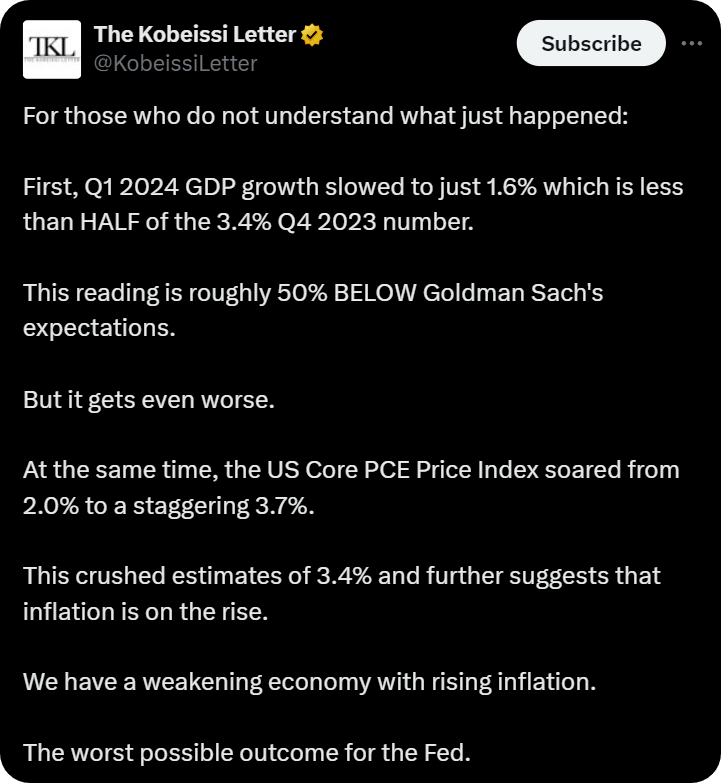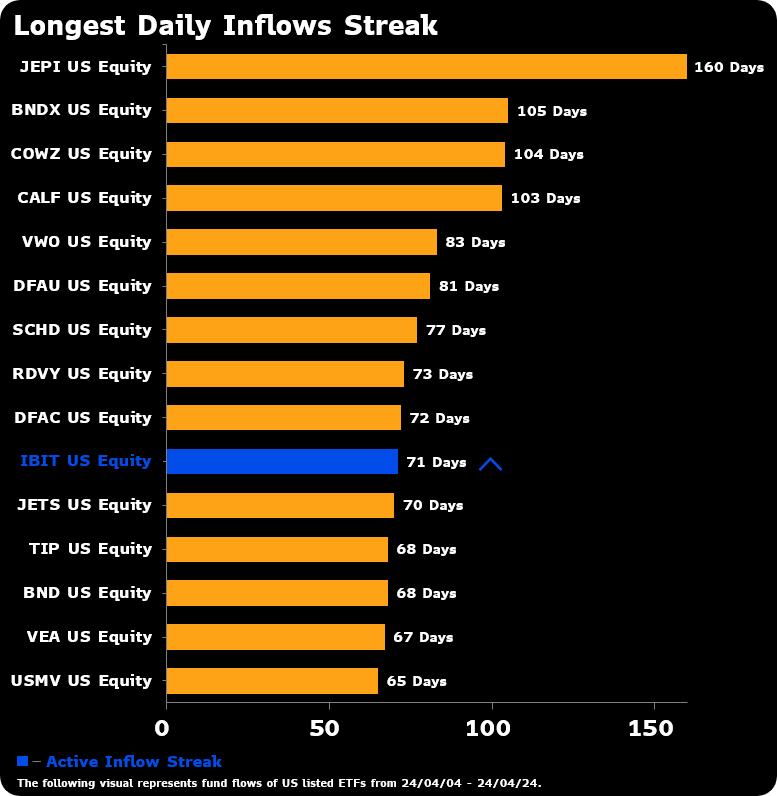Outmatched. Troubling US economic data released this morning is suggesting that the Fed has lost control. What are the numbers saying, and how have markets reacted?
The Gross Domestic Product (GDP) of the United States, a crucial indicator of economic growth that measures the value of goods and services produced, rose at an annualized rate of 1.6% in the first quarter of 2024, driven primarily by non-discretionary fixed investment and government spending and falling well short of the 2.4% consensus expectation.
Simultaneously, the personal consumption expenditures (PCE) price index, a key inflation variable, came in at an annualized rate of 3.4% for Q1, beating expectations of 3.4% and soaring from the 2.0% reading last quarter.

Risk assets have soared off their October 2022 bear market lows in the belief that central banks can tame inflation while maintaining relatively high levels of employment and some amount of economic growth, but as the pieces of the puzzle continue to fall into place, this rosey outlook has become decidedly less probable.
We’ve been led to believe that through careful manipulation of near-term interest rates, America’s Federal Reserve could secure at very least a “soft landing” for the US economy, marked by sub-trend (but not recessionary) growth and a return to the 2% inflation target.
Unfortunately, the dislocation between economic growth and inflation suggests that the Fed has lost control of the situation…
While the effects of interest rate manipulation are questionable, as suggested by the numerous periods of time throughout recent history in which Fed cuts have coincided with deepening recessions, markets had held out hope that the loosening of rates would stimulate the economy; the presence of increasing inflation makes such cuts untenable.
With market participants forced to further delay expectations for rate cuts, risk assets sold off this morning and yields have ticked up across the curve by about 1.4% to their highest levels in 2024.
Should economic growth continue to slide, it is likely that inflation will plummet as demand declines. However, there are no guarantees that adopting lower interest rates will be enough to stabilize a global economy trending towards recession.
Crypto has offered investors tremendous returns, with BTC being the best performing asset of the past decade, yet the asset class is known to demonstrate tremendous volatility and has not existed during a prolonged economic downturn.
Yesterday, BlackRock’s IBIT spot BTC ETF ended its 71-day streak of consecutive inflows, and while inflows into these instruments had served as a key narrative to promulgate excitement around BTC, the risk is high that these turn to outflows as the economy continues to decline.







